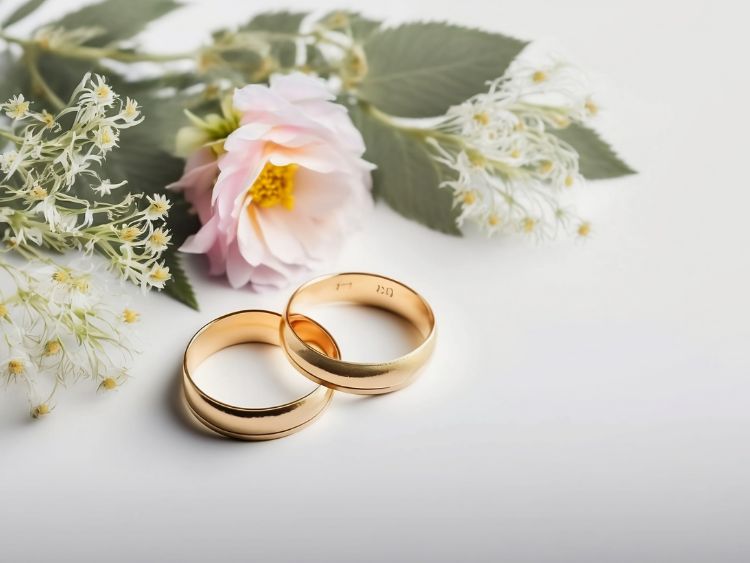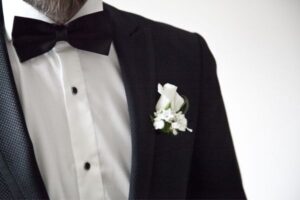In the world of formal attire, the devil is truly in the details. When you’re dressing to impress, every accessory counts. Among the most iconic pieces are vests and cummerbunds, often overlooked but undeniably crucial in completing a polished look. Whether you’re preparing for a wedding, a formal dinner, or a black-tie event, choosing the right vest or cummerbund can take your outfit from good to extraordinary. But what’s the difference between the two, and how do you decide which is right for you?
In this comprehensive guide, we’ll break down everything you need to know about vests and cummerbunds, including their history, styling tips, and how to choose the perfect one for any formal occasion. So, let’s dive into the stylish world of vests and cummerbunds!
The Origins of Vests and Cummerbunds
Before we get into the nitty-gritty of how to wear vests and cummerbunds, it’s helpful to understand where they came from and why they’ve stood the test of time. Their histories are as refined as their appearance, making them two of the most enduring pieces in men’s fashion.
The History of the Vest
The vest, also known as a waistcoat, dates back to the 17th century, when King Charles II of England first introduced it as part of the formal attire for his court. It was initially designed as a full-length coat, but over the centuries, it has evolved into a sleeveless garment worn over a dress shirt. Today, vests are an essential part of a three-piece suit and can be worn either formally or semi-formally.
Interestingly, vests were once brightly colored and extravagantly decorated with embroidery and buttons. However, the modern vest has become more subdued, favoring solid colors and sleek, minimalist designs. Despite these changes, the vest remains an enduring symbol of sophistication.
The History of the Cummerbund
The cummerbund, on the other hand, has a somewhat exotic origin. It comes from the Indian subcontinent and was adopted by British military officers in the 19th century. Originally called “kamarband,” which literally translates to “waistband” in Persian, this garment was worn as a sash around the waist. British officers found the cummerbund a convenient alternative to a vest in the hot climates of India, and soon, it became a staple in Western formalwear.
Today, the cummerbund is primarily associated with black-tie attire and is worn around the waist, covering the waistband of the trousers. It serves both a functional and aesthetic purpose, helping to create a streamlined, elegant silhouette.
When to Wear a Vest vs. a Cummerbund
Now that we’ve explored the backgrounds of vests and cummerbunds, let’s get down to the practicalities. Both pieces serve a similar function in a formal outfit, but each has its unique style and rules. So, when should you wear a vest, and when is a cummerbund the better choice?
Vests: Classic and Versatile
Vests are incredibly versatile, making them a favorite in both formal and semi-formal settings. Here’s when a vest is the best choice:
- Three-Piece Suit: Vests are the go-to for a three-piece suit. They add a layer of formality and sophistication while offering a fitted, tailored look.
- Weddings: If you’re the groom or a groomsman, a vest can give your outfit that extra flair. Choose a vest that complements the suit without overpowering it.
- Winter Events: Since a vest adds an extra layer of warmth, it’s perfect for cooler seasons. You’ll stay warm without sacrificing style.
- Semi-Formal Occasions: While vests are typically associated with formal attire, they can also be dressed down for semi-formal events. Pairing a vest with dress slacks and a button-up shirt can create a sharp but less formal look.
Cummerbunds: Sleek and Elegant
Cummerbunds, on the other hand, are reserved almost exclusively for the most formal events. Here’s when to opt for a cummerbund:
- Black-Tie Events: Cummerbunds are synonymous with black-tie attire. They are typically worn with a tuxedo and should be paired with a bow tie for a complete look.
- Slim Silhouette: If you’re going for a sleek, minimalist silhouette, a cummerbund is the way to go. It creates a smooth transition between your shirt and trousers, making you appear taller and leaner.
- Hot Weather: If you’re attending a formal event in a warm climate, a cummerbund can be a cooler alternative to a vest. Since it doesn’t cover your entire torso, you’ll stay cooler without compromising on style.
How to Style Vests and Cummerbunds
Knowing when to wear a vest or cummerbund is only half the battle. Styling them properly is where things get interesting. Whether you’re going for a classic look or something more contemporary, these styling tips will ensure you look your best.
Styling Vests
- Fit is Key: A vest should fit snugly but not too tight. The goal is to create a clean, tailored look. Make sure the vest lays flat against your body, without any pulling or gaps.
- Button Up (Mostly): When wearing a vest, leave the bottom button undone. This age-old rule stems from King Edward VII, who preferred to leave the bottom button of his vest undone for comfort. Today, it’s considered a mark of style and sophistication.
- Pairing with a Suit: If you’re wearing a three-piece suit, the vest should match the jacket and trousers in both color and fabric. For a more casual look, you can mix and match different textures and colors.
- Shirt and Tie: A vest pairs well with a dress shirt and tie. For formal occasions, opt for a solid-colored vest that complements your tie. For a more relaxed vibe, you can experiment with patterns or textures.
Styling Cummerbunds
- Pleats Up: One of the most common mistakes when wearing a cummerbund is putting it on upside down. The pleats should always face upward, traditionally used to catch crumbs during dinner!
- Color Coordination: The most traditional cummerbund is black, but for weddings or themed events, don’t be afraid to experiment with color. Just make sure the cummerbund matches your bow tie for a cohesive look.
- Positioning: Wear the cummerbund at your natural waist, ensuring it covers the waistband of your trousers. This creates a smooth line and elongates your torso.
- Bow Tie, Not Long Tie: Cummerbunds are meant to be paired with a bow tie, not a long tie. For a classic black-tie look, stick with the bow tie.
FAQs About Vests and Cummerbunds
Q: Can you wear both a vest and a cummerbund?
A: Typically, no. Vests and cummerbunds serve the same purpose, so wearing both would be redundant. Stick with one or the other depending on the formality of the event.
Q: What should you wear with a cummerbund?
A: A cummerbund is traditionally worn with a tuxedo and paired with a bow tie. It’s essential to match the color of your cummerbund with your bow tie for a cohesive look.
Q: Can vests be worn casually?
A: Absolutely! While vests are most commonly associated with formal attire, they can be dressed down for semi-formal or even smart-casual occasions. Try pairing a vest with jeans and a button-down shirt for a modern, stylish look.
Q: Should the cummerbund match the jacket or pants?
A: The cummerbund should match your bow tie, not your jacket or pants. In most cases, the cummerbund and bow tie are both black for a classic, formal look. However, for weddings or themed events, you can experiment with color.
Conclusion: Choosing the Perfect Accessory
At the end of the day, the choice between a vest and a cummerbund comes down to the level of formality and personal style. Vests offer versatility and warmth, making them ideal for a range of events, from weddings to semi-formal gatherings. Cummerbunds, on the other hand, are reserved for the most formal occasions, offering a sleek, timeless look perfect for black-tie events.
When it comes to vests and cummerbunds, one thing is clear: both are timeless pieces that can elevate your formal attire to new heights. Whether you prefer the classic appeal of a vest or the sleek elegance of a cummerbund, the key is in the details. So next time you’re dressing for a formal occasion, don’t forget to consider these essential accessories.



